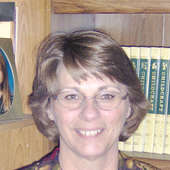Diluting the truth
Perusing online newspapers doesn't do their circulation numbers much good and I'm afraid I'm going to develop a permanent negative shake as I read story after story that confound me. Perhaps I should give it up.
Oh wait, newspapers, online and otherwise, are my bread and butter. Guess I'll just have to take more deep breaths, exhaling a prayer after each one.
A motorist in Colorado Springs, believing he had spotted someone riding his son's stolen bicycle, apparently decided that "bumping" the bicycle with his minivan, unseating the rider, was the proper road to justice. Excuse me?
It turns out it wasn't his son's bicycle after all and I'm relieved to add that the bicyclist did not suffer serious injury, although he did administer a little street justice of his own, punching the vigilante father in the nose.
Assault charges have been filed, against the motorist. (I can't believe I have to specify who is facing charges here. Apparently too many burglars have successfully prosecuted homeowners who injured them while protecting their own property ... )
I wish this were the only story that caused my head to shake this week. The fires in California are a sight to behold, a raging inferno causing untold damage to both God and man's creations. The story of the violent murders of an entire family in Georgia is stunning in its brutality, with no known motive as of this writing and the 18-year captivity of a young girl is horrifying, with more and more sordid details revealed in each new write-through.
But it was the comments attached to the story on the Denver Post online edition about an Episcopal Church closing its doors just shy of its 100th anniversary that made me dizzy. The writer surmised that the congregational dissolution was, at least in part, attributable to the controversial ordination of an openly homosexual man as a bishop in that denomination several years ago.
The decision last week by the Evangelical Lutheran Church of America to allow people in committed same-sex relationships to serve as clergy in that denomination has met with the same kind of online feedback that accompanied the story from the Denver Post.
Posters quote Scripture back and forth as fast as fingers can fly across a keyboard, and almost all were taken out of context, even those defending biblical tenets on the subject.
As disheartening as that is, it pales in comparison to the unbridled hatred revealed in some posts, again on both sides of the issue.
This decline in civility is simply one more symptom in a body ravaged by disease and infection run rampant. The patient is sick enough to die, but one of the other defining symptoms of coming death is the absolute inability to recognize that anything, at all, is wrong. This final symptom of man's ultimate demise is the nearly total absence of anything close to restraint.
Any offense is suddenly a fighting offense, whether the subject is health care or homosexuality. The gloves have come off and I'm afraid the pitchforks and torches are coming next.
It's become an us vs. them situation and no one wins. Because they are us and we are them.
Every time believers try to bridge the gap, the chasm grows wider.
Appeasement doesn't work. Tolerance is not synonymous with acceptance. Both approaches have, throughout the history of Christianity, resulted in a dilution of truth, of the absolutes, even of the need of a Savior. And that's why no one wins.
Paul tells us, "all are sinners." ( Romans 3:23) John warns that if "we say we are without sin, we are liars and the truth is not in us." (I John 1:8) Jesus came for sinners and I must join Paul in saying, "of whom I am the worst." (I Timothy 1:5)
John the Baptist, in preparing the way for Jesus, called out to Israel, "Repent, for the kingdom of heaven is at hand." (Matthew 3:2)
All of these statements are as applicable today as they were when they were uttered for the first time. And every sinner, regardless of what cherished sin resides in his heart, must decide whether to continue in that sin or to repent of it and turn to Jesus, who forgives even as he heals.
"Calling that which is evil, good" won't cut it. I don't care how many churches, pastors, or congregations say it, it can't, it won't, ever make it so.
Nebraska Synod Bishop David deFreese admitted, when addressing the ELCA vote last week, that "Good people of earnest Christian faith arrived at very different understandings on this subject."
I do not doubt the sincerity on either side of this issue. But when the church fails to speak the truth about what is or isn't sin, when people of earnest faith reach out to unrepentant sinners and walk beside them on the road to Hell, all the while assuring them of God's acceptance, they fail their faith, their Christ, themselves and the sinner.
"Love your neighbor as yourself" sometimes means loving them enough to trust them with the truth. (Matthew 22:39)
"Woe to those who call evil good and good evil, who put darkness for light and light for darkness, who put bitter for sweet and sweet for bitter." Isaiah 5:20 (All Scripture citations are NIV)

